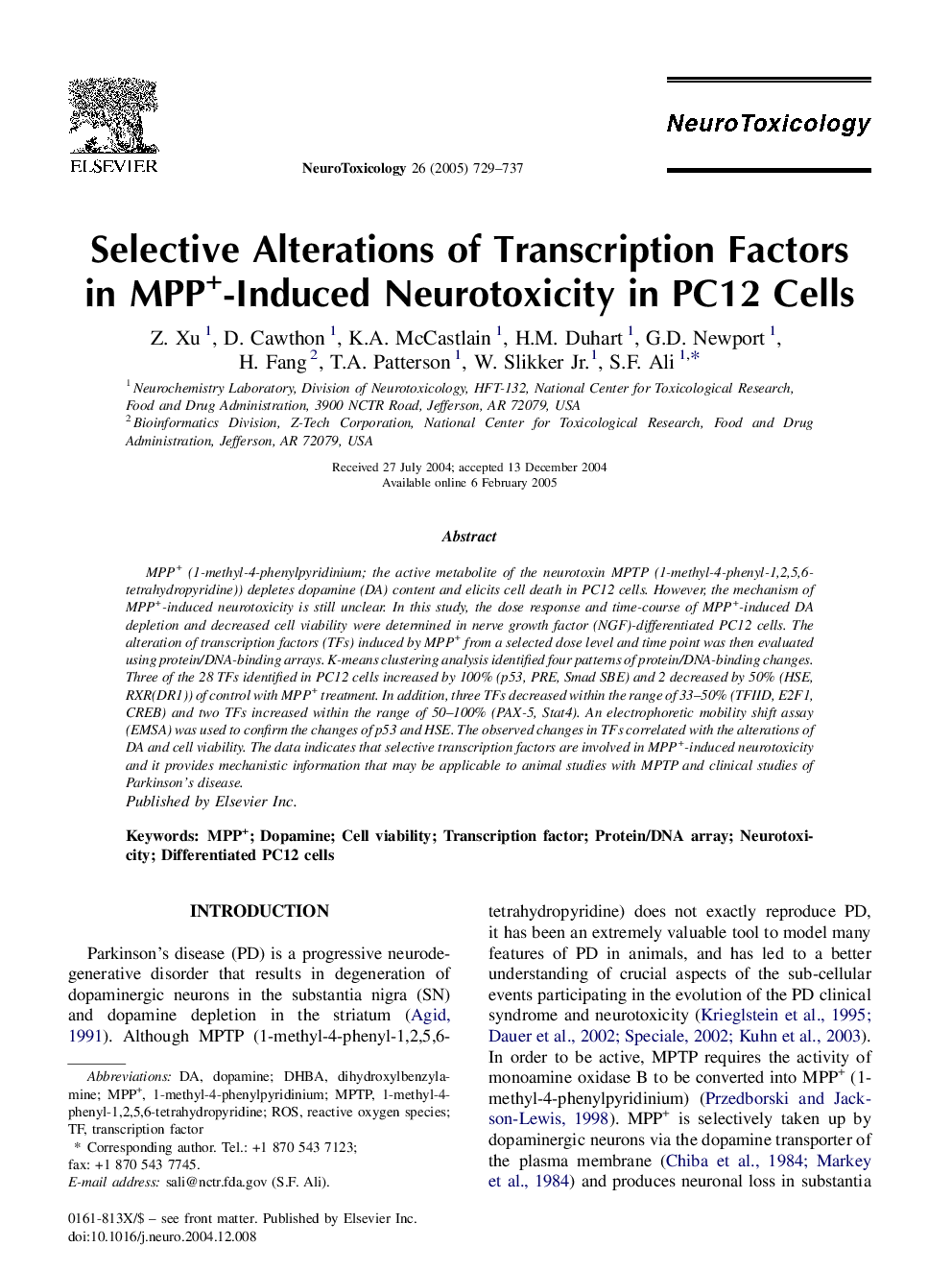| Article ID | Journal | Published Year | Pages | File Type |
|---|---|---|---|---|
| 9032165 | NeuroToxicology | 2005 | 9 Pages |
Abstract
MPP+ (1-methyl-4-phenylpyridinium; the active metabolite of the neurotoxin MPTP (1-methyl-4-phenyl-1,2,5,6-tetrahydropyridine)) depletes dopamine (DA) content and elicits cell death in PC12 cells. However, the mechanism of MPP+-induced neurotoxicity is still unclear. In this study, the dose response and time-course of MPP+-induced DA depletion and decreased cell viability were determined in nerve growth factor (NGF)-differentiated PC12 cells. The alteration of transcription factors (TFs) induced by MPP+ from a selected dose level and time point was then evaluated using protein/DNA-binding arrays. K-means clustering analysis identified four patterns of protein/DNA-binding changes. Three of the 28 TFs identified in PC12 cells increased by 100% (p53, PRE, Smad SBE) and 2 decreased by 50% (HSE, RXR(DR1)) of control with MPP+ treatment. In addition, three TFs decreased within the range of 33-50% (TFIID, E2F1, CREB) and two TFs increased within the range of 50-100% (PAX-5, Stat4). An electrophoretic mobility shift assay (EMSA) was used to confirm the changes of p53 and HSE. The observed changes in TFs correlated with the alterations of DA and cell viability. The data indicates that selective transcription factors are involved in MPP+-induced neurotoxicity and it provides mechanistic information that may be applicable to animal studies with MPTP and clinical studies of Parkinson's disease.
Related Topics
Life Sciences
Environmental Science
Health, Toxicology and Mutagenesis
Authors
Z. Xu, D. Cawthon, K.A. McCastlain, H.M. Duhart, G.D. Newport, H. Fang, T.A. Patterson, W. Jr., S.F. Ali,
